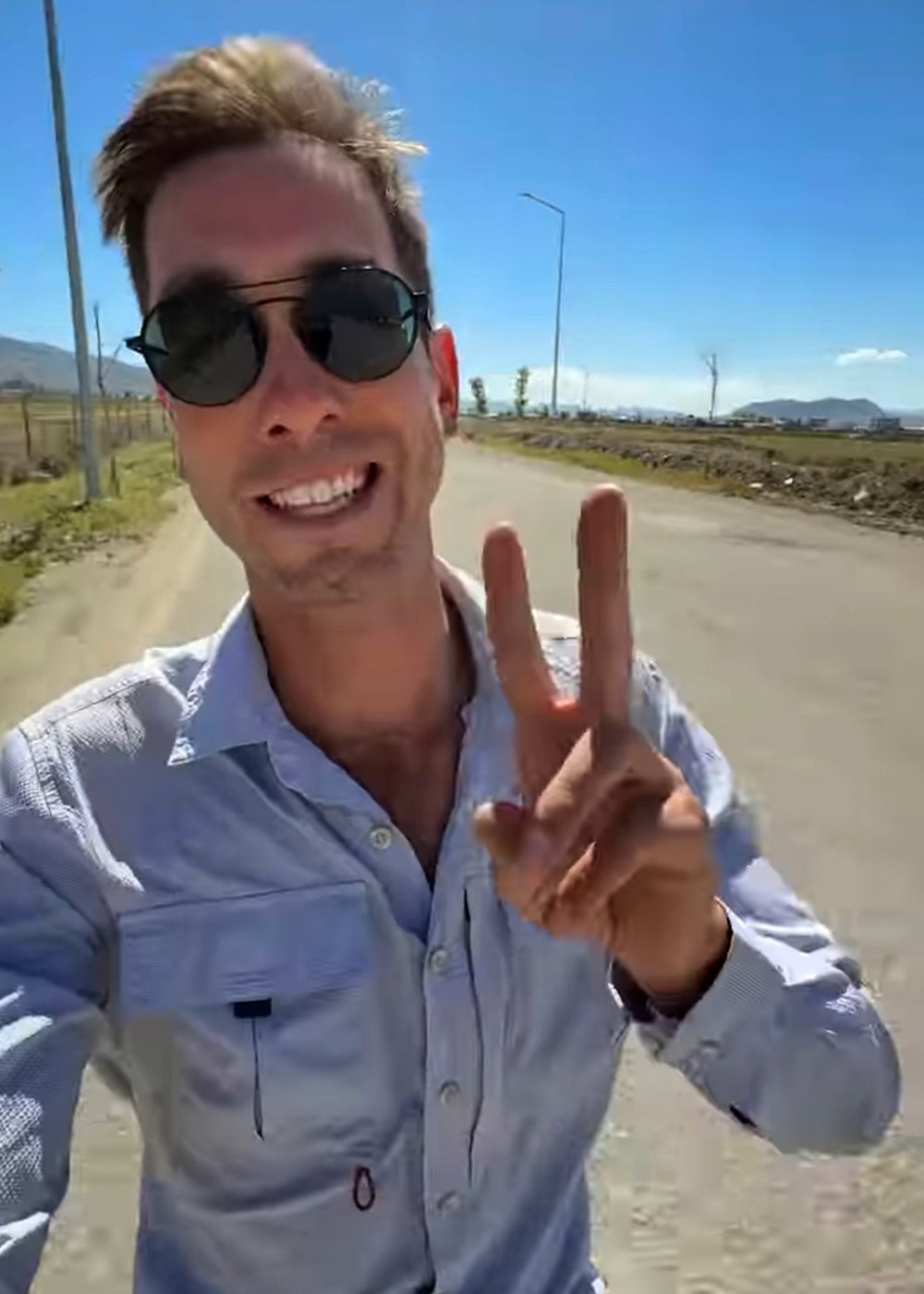Elevate your local knowledge
Sign up for the iNFOnews newsletter today!

DUBAI, United Arab Emirates (AP) — Ian Andersen was biking through Iran last week when Israel launched strikes on Iranian nuclear sites and the country’s military leaders, drawing Tehran’s swift response with barrages of missiles.
The 32-year-old from Minnetonka, Minnesota, said he did not expect to get caught up in what looked like a real war zone. He fled to neighboring Azerbaijan on Monday.
“The bombs started falling,” Andersen said Wednesday, speaking to The Associated Press over Zoom from a hotel in Baku, Azerbaijan’s capital. “It was extremely scary.”
Andersen was on a yearslong, personal mission to cycle across all seven continents. He had been touring Iran with a local guide, which is a must for U.S. visitors to Iran, and sharing videos of his journey with tens of thousands of his social media followers since the beginning of the month.
On Friday — “the day the bombs started falling” — they were on the road from the town of Chalus, on Iran’s Caspian Sea coast, driving south to the capital of Tehran, where Andersen hoped to apply for a visa to Afghanistan, with the goal of crossing into Central Asia and eventually Russia.

“It was really just, like, the worst timing possible,” Andersen said.
They sheltered in place and decided to speak Spanish so no one would suspect Andersen’s American identity. He saw long lines of cars on the road fleeing Tehran. Family, friends and social media followers were worried for him.
Eventually, the U.S. State Department sent Andersen an email advising him to leave for Azerbaijan or Turkey. With his VPN blocked, a friend in Los Angeles applied for an Azerbaijani visa on his behalf, which was granted with emergency approval from the U.S. Embassy in Baku.
Andersen said the circumstances made him abort his biking plan — at least for now. To have kept going would have been “a little nutty,” he said.
“I was crazy for going in there in some people’s eyes in the first place,” Andersen said. “And then getting out I think was the safe, smart choice at that point.”
For now, his plans are up in the air as he considers what to do next. Some time ago, he’d traded his job back home, working as a project manager at a construction company, to bike the world.
Biking was his dream, his escape, Andersen said, adding that he had struggled in the past with addiction and attention deficit hyperactivity disorder.
“Maybe I was a bit naive,” he said but added that he doesn’t regret the trip.
He has had dangerous moments before, recounting how in 2023 in northern Kenya, a tribesman threatened to throw a spear at him while he was biking through a rural area.
“There’s always going to be a risk, and you have to accept it,” he said.
Andersen said he plans to take a ferry across the Caspian Sea to Kazakhstan, and then bike east into Uzbekistan.
“But I don’t know where to go from there,” he said.
Want to share your thoughts, add context, or connect with others in your community?
You must be logged in to post a comment.